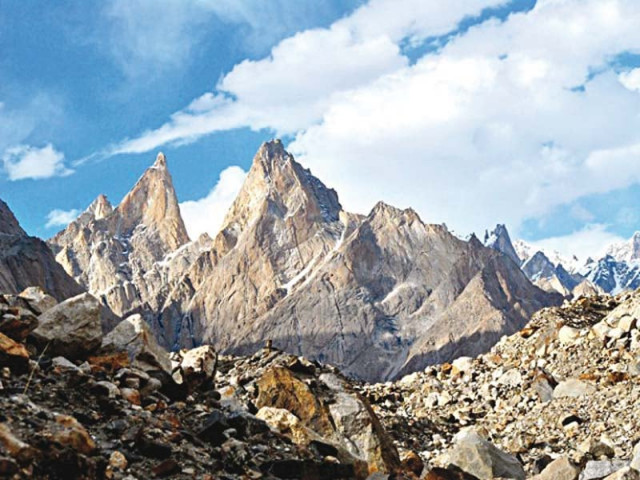Mountain viewpoint: Highlands may become rockier with bad weather
Conference discusses impact of climate change on food security

Adaptation to changing weather patterns would require a series of actions ranging from climate-smart practices, adjustment in infrastructure, improved water harvesting, storage and management. PHOTO: FILE
This was the crux of an international conference on “Action for Adaptation: Bringing Climate Change to Policymakers”, organised by the International Centre for Integrated Mountain Development.
At an interactive session, the panelists highlighted that the impact of climate change is a reality in the upper Indus basin in the form of floods, droughts, degradation of vegetation cover, deterioration of soil and a reduction in livestock productivity. The speakers noted that in order to make the mountain agriculture more resilient in response to the climate change, local people and institutions needed to adapt to the changing weather patterns.
This would require a series of actions ranging from climate-smart practices, adjustment in infrastructure, improved water harvesting, storage and management.
“Food, water and energy security is equally important for sustainable development of the economy and there is a need for an effective strategy to integrate all these factors,” said Mountain and Glacier Protection Organisation Head Dr Aisha Khan. She underlined the need for an integrated and holistic approach to mitigate the impact of climate change on agriculture productivity and sustainable use of water resources for ensuring food security in the country. She mentioned that Pakistan has huge hydroelectric power potential in the upper Indus basin and it was still untapped.
“There is a need to find ways to protect lives and livelihood from the impact of climate change, particularly in mountainous areas,” said Khan.
Published in The Express Tribune, July 24th, 2015.
Like Business on Facebook, follow @TribuneBiz on Twitter to stay informed and join in the conversation.



















COMMENTS
Comments are moderated and generally will be posted if they are on-topic and not abusive.
For more information, please see our Comments FAQ